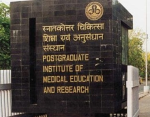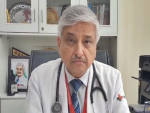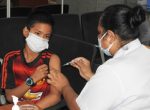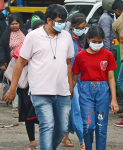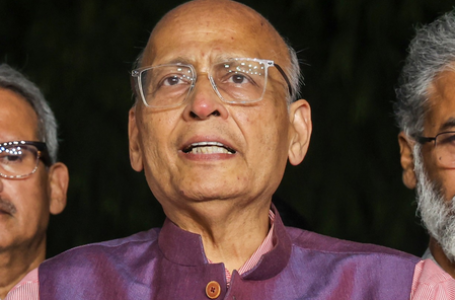
cardiac arrest.(Photo:unsplash)
New Delhi: Cases of cardiac arrest have seen a spurt in recent times, but the bigger question is the ability to diagnose and prevent such cases. The surge in rising cases of cardiac and non-communicable ailments has perplexed corporate India as well as the larger medical fraternity.
When Swiggy CEO Rohit Kapoor criticised the hustle culture advocating for a healthier approach to life, many youngsters followed him on social media. But, when it comes to practice, Gen-Z and millennials are more likely to follow odd-health practices than follow preventive measures.
New and rising medical epidemic
Rising non-communicable diseases could be one explanation for these deaths. The World Health Organisation states that non-communicable diseases (NCDs), such as heart disease, stroke, cancer, diabetes, and chronic lung disease, as collectively responsible for 74 per cent of deaths globally. These ailments are attributed as the most challenging lifestyle diseases to tackle in the 21st century.
Of the non-communicable diseases, cardiovascular diseases (CVDs) have seen a rampant increase — from 25.7 million cases in 1990 to 64 million in 2023. It’s also a baffling trend because data from the World Heart Federation found India accounts for 15 per cent of all diabetes cases worldwide.
Also, 40-50 per cent of heart-related ailments are of those below the age of 55. Given the gravity of the situation, one would expect society and young people to adopt healthy practices. Unfortunately, a fast-paced lifestyle, digital practices, and blurring personal and professional lives do not lead to a conducive environment for healthy living.
Rising cortisols and burnout syndrome
The constant pressure to excel, and achieve personal and professional goals, succumbing to peer group and societal pressures, and unhealthy eating habits lead to chronic stress and anxiety. This phenomenon contributes to additional cortisol production which in turn aggravates the underlying cardiovascular conditions and NCDs.
WHO data as early as 2018 highlights how rising cortisol manifests into not only higher NCD but also endocrine and neurological symptoms. Clinical studies and recent cases point out that high cortisol could cause even loss of DNA.
Focus on overall well-being
The general perception is that ‘since I am young, I am immune to silent killers such as Diabetes, or CVDs’. Unfortunately, non-communicable diseases develop silently over the years. And, poor lifestyle choices practiced in the 20s and 30s set the stage for a health crisis in the future. Young professionals who are caught in the whirlwind of career building, often neglect basic health and work practices.
A marked improvement is witnessed in awareness of stress and the role of sugar in diet. But even those who recognize risks associated with junk food, are unable to make the right dietary decisions. Sugar is often a hidden component in many products, including foods marketed as “healthy.” For instance, smoothies, energy bars, flavoured yoghurt, and even some salads contain excessive amounts of sugar, which may exacerbate NCD and stress.
The normalisation of high levels of stress is dangerous. Over time, chronic stress leads to elevated cortisol levels, high blood pressure, and inflammation, all of which contribute to the development of heart disease. Mental well-being is also equally critical as physical health, yet it remains a low priority for many young people.
Blaming societal pressures or corporate setup may not serve justice, rather one needs to acknowledge the clear problem. A more pragmatic yardstick incorporating physiological and psychological parameters needs to be developed. Young workers clearly need to change their perception of their own health from reactive to preventive.
The belief that youth is a shield against serious health conditions is not only misguided but dangerous. Silent killers like cancer, cardiovascular disease, and diabetes don’t discriminate by age — they thrive on neglect.
(Dr. Manpreet Sethi is paediatric endocrinologist at Max Hospitals, Delhi NCR. She can be contacted at drmanpreetsethi@gmail.com).
IANS



